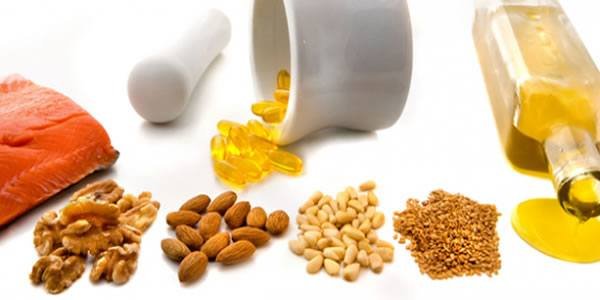Top 5 plant foods source of omega-3 fatty acids

Most of us have probably heard how useful omega-3 fatty acids are for maintaining good health.
And it is certainly true that these beneficial properties are truly impressive: the intake of optimal amounts of omega-3 fatty acids with food is associated with lowering of blood pressure and “bad” cholesterol levels , as well as with the overall improvement of the state of the cardiovascular system, better functioning of the brain and with the limitation of inflammatory processes in the body.
However, most people are under the impression that the only sources of these fats are salmon and tuna.
However, it is a fact that there are many plant sources of this nutrient, and the 5 most available for the Bulgarian consumer are listed below.
Seeds and Nuts
Flaxseed, as well as chia (collective name for several types of salvia) and hempseed are important not only for vegetarians and vegans as a source of plant proteins, but they are also a of the best sources of omega-3 fatty acids.
In addition, chia seeds also contain a significant amount of calcium, which makes them especially valuable for vegans, whose diet does not allow the consumption of dairy products.
It should be noted that other types of seeds such as sunflower, pumpkin and safflower are also a source of omega-3, but the ratio of fats in their composition is not considered as healthy.
Nuts with a high omega-3 content are almonds and walnuts, and from them we can easily get the optimal amounts of protein we need.
Green leafy vegetables
It should come as no surprise to you that dark leafy greens such as arugula, spinach and lettuce are a relatively good source of omega-3s, but they are also rich in many other nutrients,
strong>such as fiber, iron, calcium and vitamins C and K, etc.
The good thing is that they can be eaten raw in a salad or added to countless soups, stews and baked goods.
Legumes
Although legumes contain lower amounts of omega-3 than seeds, the fatty acids are in the right ratio and are therefore also very valuable for vegetarians and vegans who, in order to adhere to their specific diet, they should get more plant proteins and from as many plant foods as possible.
Besides protein, legumes have a high fiber content and are also a source of many minerals. Fiber in combination with omega 3 is an excellent preventive measure against diseases of the cardiovascular system.
Cruciferous vegetables
Cruciferous vegetables such as broccoli, cauliflower, cabbage and Brussels sprouts have a very good ratio of omega-3 to omega-6 fatty acids.
And of this group, cauliflower is in first place in terms of useful properties. If cruciferous vegetables are included in the diet, one will get not only extremely healthy omega-3s, but also fiber, vitamins, minerals and valuable phytochemicals, which have simultaneously antioxidant and anti-inflammatory properties.
Pumpkin
A very good source of omega-3, but it also contains vitamins A and C, which are beneficial for health, just for the autumn-winter season. Separately, pumpkins are rich in antioxidants such as beta carotene and soluble ballast substances, which facilitate the cleansing of the large intestine from indigestible food ingredients.



